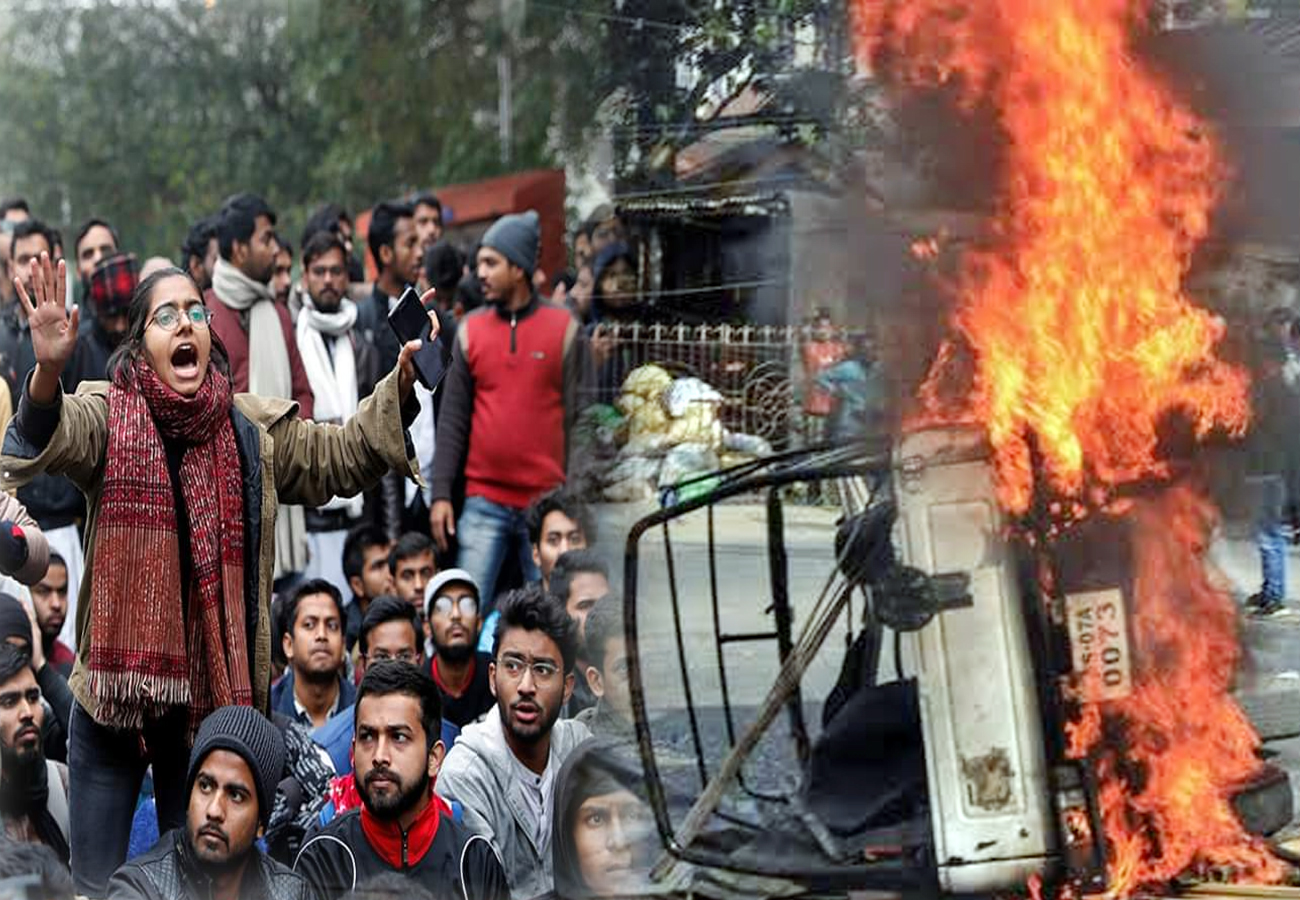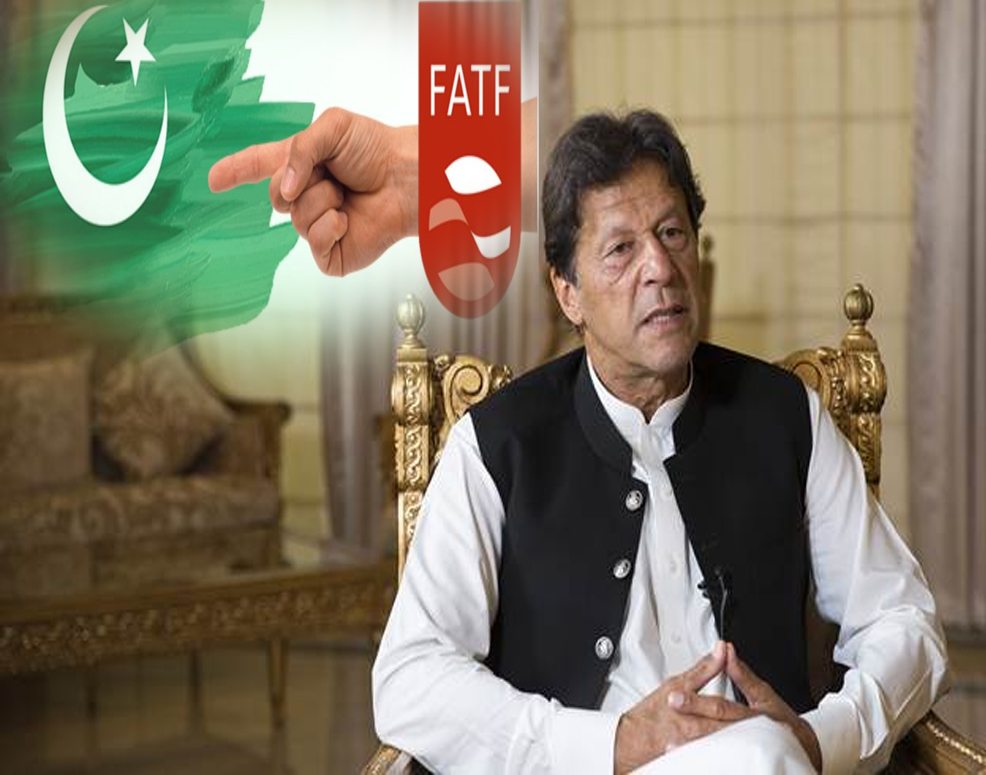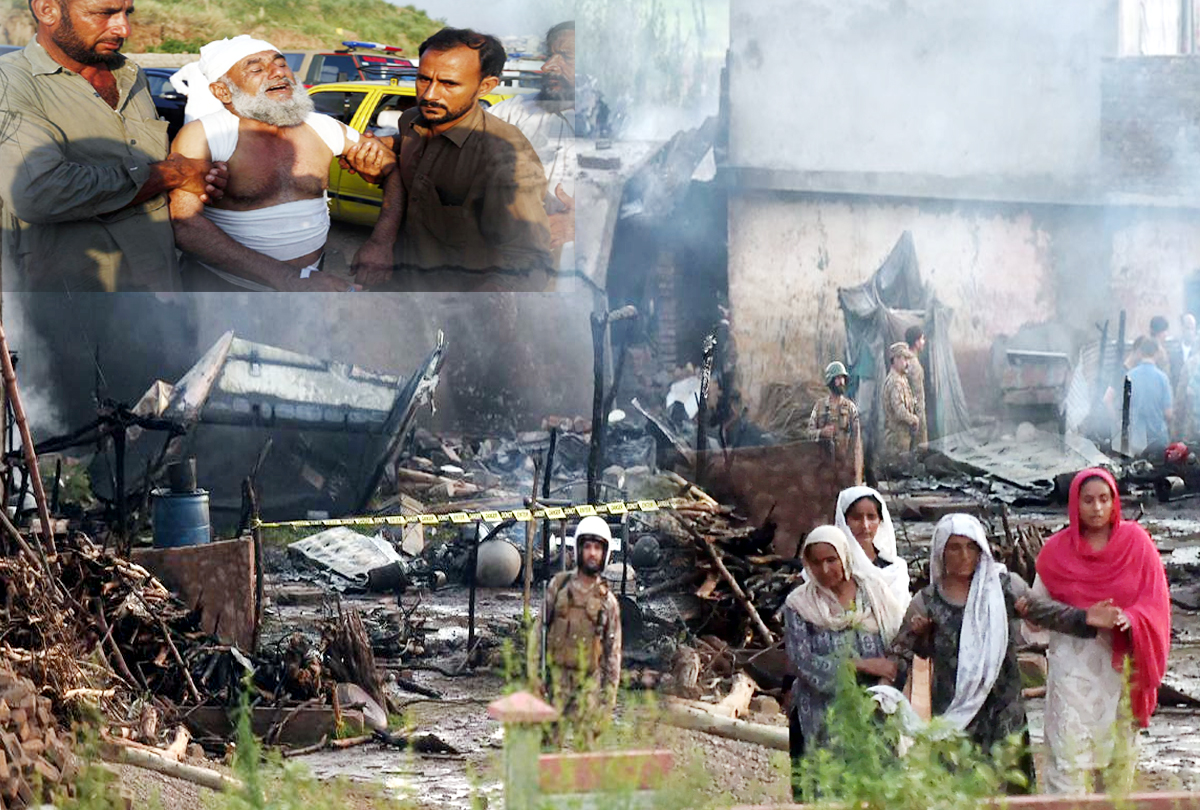Jamia Violence: Delhi Police arrest 10 none students with criminal backgrounds

[Edited By: Gaurav]
Tuesday, 17th December , 2019 12:22 pmDelhi Police have arrested 10 people with criminal backgrounds for their alleged involvement in the Jamia Nagar violence. According to a senior police officer, no student has been arrested. The university had turned into a battlefield on Sunday as police entered the campus and also used force, following protest against the Citizenship Amendment Act, which led to violence and arson in which four DTC buses, 100 private vehicles and 10 police bikes were damaged.
Felt like I am in Kashmir: Jamia student recalls Delhi Police crackdown
On Sunday, a peaceful protest by the students of Jamia Millia Islamia University against the amended citizenship act turned ugly and violent. Several public buses were set ablaze, torched down by the protesters. Delhi Police also accused protestors of pelting them with stones, following which the cops barged into the campus. The images of police crackdown in Jamia University Campus was widely reported in media. Various news outlets reported how the Delhi Police stormed into the campus without seeking Vice Chancellor's permission, barged into the library and used baton against students. On Monday, colleges and universities across India came out in protest against the Delhi Police action and joined the anti-Citizenship Amendment Act protest. From IIM Ahemdabad to IIT Madras and Kerala to Lucknow, Jadavpur to Guwahati, protests rocked the country. In New Delhi Priyanka Gandhi sat on a symbolic protest and called the police action as "attack on India's soul and democracy."
The police lathi-charged students and lobbed tear gas inside the campus library. According to Delhi Police, these actions were taken as a measure to tackle the violent 'actions' of the protesting students. However, the students of Jamia Millia Islamia have a different story to tell.
"The whole thing started around Mata Mandir. According to some locals, it was the police who had torched the buses. Students didn't burn those buses." said Nabiha Elahi, a final-year Mass Communication student at AJK Mass Communication Research Centre.
Meanwhile, the university's Chief Proctor Waseem Ahmed Khan issued a statement that no students were involved in the violent protest and maintained that the police had entered the premises without permission.
According to students, the police ravaged the campus, vandalised properties inside the premise and attacked the students.
"The students who were inside the library were asked to vacate the premises with their hands up in the air as if they were some terrorists. My flatmate invited some female students over, as they had no other place to go. The police were chasing the students. The hostel electricity was shut down, it was horrible."
Meanwhile, there are several reports that some students have been killed amid the tussle, which the students of the varsity deny. However, a student lost his eyes after he was thrashed by policemen.
Aqdas Sami, a second-year Mass Communication student at MCRC, was a part of the protest. He clarified that there were three separate protests taking place at the same time. He also maintained that the media have been reporting false information about these protests.
One of the protests was at the Kalindi Kunj road, which was led by the MLA Amanatullah Khan, the second protest was at Jamia University which was led by the students and another agitation was being led by the Batla house locals.
Sami said: "Jamia protests were taking place at Gate number seven and had nothing to do with the other two protests. On Sunday, the agitators from the Batla House protest went to Julena, passing through the campus since there is only one road. This group did some vandalizing. This group had nothing to do with the Jamia protest. The students were inside and near the campus peacefully protesting."
"The police started pushing back those protesters, hitting them mercilessly and eventually came inside the premises. These policemen started vandalizing the whole campus like goons. They started using tear gas, flash grenades, and lathi-charged students as if they were some criminals or terrorists. I was in the campus and they chased me," he added.
The police have also vandalised the mosque which is situated inside the campus. Security guards of the university were also brutally attacked. The students maintained that the police entered the campus without permission from the Proctor.
The students also claimed that some viral videos and pictures that show that anti-Hindu slogans were raised during the protests are fake.
Aqdas Sami said: "Why is Delhi Police quiet if they didn't burn the bus? I want to ask them, why they want to burn Delhi? You have ravaged our university. This is is the same university whose foundation was built by Mahatma Gandhi himself. This is the university, whose vice-chancellor Zakir Hussain, was the former President of India. They have broken down the spirit of Muslims in this country. How can they beat us up like that?"
Author and activist Harsh Mander took part in the protest in solidarity with the students of Jamia on Monday.
According to hospital reports, over 125 students were severely injured on Sunday.
Even after being thrashed severely, the students are still determined and they are planning to take this protest on a larger scale. They want the government to listen to them and change their stand.
The protests against the Citizenship Amendment Act have spread like wildfire in several universities and colleges across the country.
Nabiha said: "I always try to imagine how people who are living in Kashmir feel. These four days made me feel that I am in Kashmir, away from my family, terrified about the uncertainties that what would hit us next."
Even though these students are angry and want answers, they are scared and, above all, uncertain about the future of this country.
The bill became an act after President Ram Nath Kovind on December 12 gave assent to it, which led to massive protests across the country.
According to the Act, members of Hindu, Sikh, Buddhist, Jain, Parsi and Christian communities who have come from Pakistan, Bangladesh and Afghanistan till December 31, 2014, and facing religious persecution there will not be treated as illegal immigrants but given Indian citizenship.
The Citizenship (Amendment) Bill was passed by Rajya Sabha on December 11 and by Lok Sabha on December 9.
Latest News
-
2-Doxy-D is a game-changer drug - discovered by sc
-
UP Covid News: Recovery rate rises 86 percent in U
-
Big B orders 50 oxygen concentrators from Poland,
-
Today is Akshay tritiya-PM Modi and Akhilesh yadav
-
Kanpur health department doing preparations to fig
-
UP Govt. must be held accountable for "failing" it
-
16 doctors in Unnao UP resign yesterday but retrac
-
Vaccine is safety cycle against corona pandemic-CM
-
Life of every person is priceless,rescue is the be
-
Kanpur Municipal Corporation will make dust free K
-
Corona vaccination: UP government withdraws the de
-
UP Government should follow the orders of Highcour
-
Uttar Pradesh-IG roaming in the city without the u
-
PM, take off those pink goggles, by which nothing
-
Rahul Gandhi's counterattack on BJP Government’s s
-
Happy international nurse day-PM Modi, Rahul Gandh
-
Online food delivery and liquor shops can open the
-
Egoistic BJP should work in public interest instea
-
High court directed UP Government to make a Covid
-
Isolation rooms to be built in industrial units, a
-
WHO has appreciated the effort of the Yogi Adityan
-
Brother is forced to carry his corona afflicted br
-
Lucknow- Free auto service for covid patients
-
Lucknow-Defense Minister and CM Yogi inaugurated
-
Wine shops opened in kanpur
-
Kanpur: oxygen demand 50 percent decrease as infec
-
Kanpur Crime Branch Police arrested 2 accused of i
-
Kanpur police's initiative to prevent corona infec
-
CM Yogi inspected the community health center in c
-
Corona's third wave: IIT professor claims not to c
World News
-
American president Appoints Two More Indian To Key
-
Arora Akanksha an Indian running for United Nation
-
Brazil thankes india with hanuman after receiving
-
Toronto protest against Indian citizenship law as
-
One-Of-A-Kind Wedding: After Groom's Father Gets A
-
Kim's Horse Ride On Sacred Mountain Hints At "Grea
-
Chinese President’s India visit on track, confirms
-
'Howdy Modi' event 'win-win' situation for Modi an
-
Malala urges U.N. to help Kashmiri children go bac
-
Rocket blast at U.S. Embassy in Kabul on 9/11 anni
-
PM Modi launches $4.2 mn redevelopment project of
-
Pakistan Blacklisted by FATF's: After Failing to A
-
Amazon Rainforest burning: Brazil President tells
-
10 shoking pics of Amazon Rainforest Burning
-
200 pakistan twitter accounts suspended on kashmir
-
Trump dials Imran Khan, asks to ‘moderate rhetoric
-
No policy change on Kashmir, says U.S.
-
Hamza, the son of Osama bin Laden, is dead
-
Ethiopians planted more than 200 million trees in
-
Pakistani military aircraft crash: All 5 crew memb























